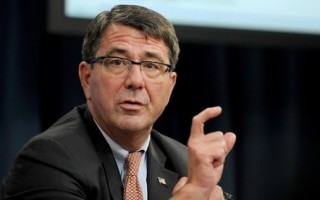Deputy Defense Secretary memo adapts industry to budget uncertainty
NewsJanuary 11, 2013

WASHINGTON. Deputy Defense Secretary Ashton B. Carter released a memorandum yesterday informing the U.S. armed services, as well as defense agencies, to prepare for possible budget challenges in the coming months, allowing defense components to terminate temporary hires, freeze civilian hiring, and limit base overhead. Pointing to the threats of sequestration and the "continuing resolution" enacted by Congress, the memo also calls for components of the department to cancel third and fourth quarter ship maintenance, examine ground and depot-level maintenance, and review contracts for potential cost savings.
Beyond sequestration, because Congress failed to approve an appropriations act for Fiscal Year (FY) 2013, most Department of Defense (DoD) operational funding has been capped at FY 2012 levels, though it was scheduled to increase at the onset of 2013. At current rates of expenditure, funds will be exhausted prior to the end of the year on the 2012 budget unless a resolution is met. The continuing resolution will affect DoD spending through at least March 27.
"Given this budgetary uncertainty, the department must take steps now," Carter wrote in the memo. "I therefore authorize all Defense components to begin implementing measures that will help mitigate execution risks. For now, and to the extent possible, any actions taken must be reversible at a later date in the event that Congress acts to remove the risks … The actions should be structured to minimize harmful effects on our people and on operations and unit readiness."
Further, the Deputy Defense Secretary's memo calls for all research and development and production and contract modifications over $500 million to be cleared with the Undersecretary of Defense for Acquisition, Technology, and Logistics. In addition, all components are to provide the Undersecretary and Assistant Secretary of Defense for Research and Engineering with an assessment of the budgetary impacts that fiscal uncertainty will have on the research priorities of their science and technology accounts.
Training, travel, and conference expenditures within the department are also being strictly limited.





